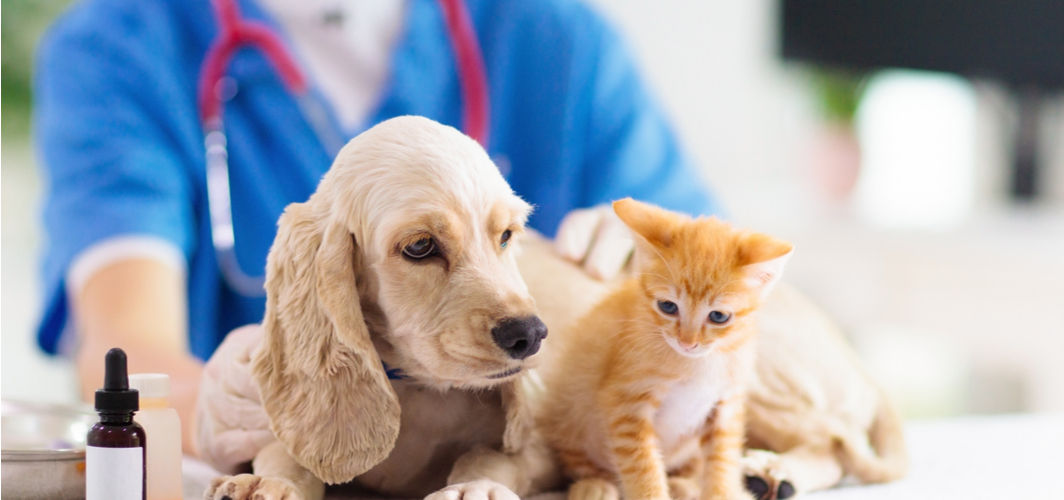General Health
5 Diseases You Can Get From Your Pet
4 min read
By Apollo 24/7, Published on - 17 February 2022, Updated on - 27 April 2023
Share this article
0
27 likes

Pets not only provide us with unconditional love and great company, but also help reduce stress and anxiety significantly. However, just like other animals, your pets can also be a carrier of several microorganisms such as bacteria, fungi, and viruses. These microbes can transfer from your pet to you and result in infectious diseases called zoonotic diseases. Let us understand more about these diseases.
How do diseases transfer from pets to humans?
Pets can transfer diseases to humans through:
- Bites or scratches
- Direct contact with animal waste, saliva, or dander
Who is more prone to develop diseases from pets?
While anyone can develop a zoonotic disease, people who can be at higher risk include:
- Young children under the age of 5 years (because their immune systems are not fully developed)
- Older adults aged 65 years and above
- Pregnant women
- Those with weak immune systems due to any illness
What diseases can you get from your pet?
While some of the common diseases found in housepets such as distemper, and Parvovirus cannot spread to humans, some infections are transferable. These diseases include:
- Rabies: Rabies is a deadly viral disease that spreads through bites of infected and unvaccinated animals. The infected saliva of the animals (dogs, cats, and other rodents) enters the human blood upon biting, and causes infection. While initially, the person may experience nausea and fever, it can progress to brain dysfunction, anxiety, confusion, hallucinations, hydrophobia (fear of water), and insomnia (lack of sleep). To prevent rabies infection, one must clean the bite with soap and water and consult the doctor immediately for vaccination and the right course of treatment.
- Ringworm: Just like humans, dogs, cats, horses, and other animals can also develop ringworm infection. Ringworm is a fungal disease affecting the skin and scalp, which can be passed on from animals to humans through direct physical contact. The infection can cause red, ring-shaped, scaly rashes on the skin. To prevent ringworm infections, one must keep their pets’ surroundings clean and use antifungal creams, sprays, or oral medications as per the doctor’s advice.
- Cat-scratch disease (CSD): One can get infected with the cat-scratch disease if an infected cat bites, scratches, or licks an open wound. Once infected, the area can get painful, swollen, and filled with pus. The person may also experience general symptoms such as a fever, loss of appetite, headache, and weakness. To prevent CSD one should keep their cat’s nails trimmed and get flea treatment done periodically. Any scratches or bites must be washed with soap and water followed by proper medical treatment.
- Toxoplasmosis: People who clean their cats’ litter box with bare hands or near the kitchen are most likely to develop toxoplasmosis. It is a parasitic disease that can cause great harm to pregnant women and those with a weak immune system. Infected people may experience fever, muscle pain, and blurring of eyes. Though pregnant women may not experience symptoms of toxoplasmosis, it can cause defects in the nervous system of their unborn babies.
- Campylobacteriosis: Campylobacteriosis is a bacterial disease that can be transferred from the faces of an infected dog or cat. The infection may result in abdominal pain, diarrhoea, nausea, and fever. Though the infection is self-limiting, some people with a weak immune system may require antibiotic treatment.
How to avoid pet infections?
- Get your pets vaccinated for distemper, hepatitis, influenza, Parvovirus, and rabies. Regular deworming is equally important to prevent worm-related infections.
- Make sure that your pet’s living area is clean and free of waste.
- Wear gloves and a mask while dealing with your pet’s waste. Do not forget to wash your hands thoroughly afterwards.
- Clean the pet’s cage, carrier, tank, or litter box outside the house in a tub to avoid cross-contamination. Also, clean the tub with bleach or detergent afterwards.
- Do not kiss or touch the pet’s mouth as infection can spread through saliva.
- Avoid sharing food with your pet.
- Do not let your pet enter the kitchen, especially when the food is being prepared or served.
- Do not touch or caress animals who appear sick.
Recommended Read: Can You Keep A Pet If You Have COPD?
Conclusion
While most house pets are vaccinated against several infections, one must practise stringent hygiene measures, especially if they live with young children, elderly, pregnant, or immunocompromised people. Pet owners should take their pets for regular veterinary visits and vaccination to ensure health and safety for the pet as well the family.
Need more information on pet-related diseases?
General Health
Leave Comment
Recommended for you

General Health
5 Tips By Dermatologists To Prevent Ingrown Hair
Ingrown hair usually affects those with thick, curly hair, and if left untreated, they can get infected. Learn how to handle them from getting worse and how can they be avoided.

General Health
5 Things You Should Never Do In Winter
The seasons each have their highs and lows. Given that winter has arrived and will likely stick around for a while, it's important to recognise that even seemingly harmless routines might pose serious risks during the season. Take a look at this list of basic habits.

General Health
Keep Yourself Safe During The Cough And Cold Season
It is common to get cold and flu during the transition of weather from autumn to winter. This article provides scientifically proven tips to keep away from cold and cough this season.
Subscribe
Sign up for our free Health Library Daily Newsletter
Get doctor-approved health tips, news, and more.
Visual Stories

Could There Be More to Your Snore?
Tap to continue exploring
Recommended for you

General Health
5 Tips By Dermatologists To Prevent Ingrown Hair
Ingrown hair usually affects those with thick, curly hair, and if left untreated, they can get infected. Learn how to handle them from getting worse and how can they be avoided.

General Health
5 Things You Should Never Do In Winter
The seasons each have their highs and lows. Given that winter has arrived and will likely stick around for a while, it's important to recognise that even seemingly harmless routines might pose serious risks during the season. Take a look at this list of basic habits.

General Health
Keep Yourself Safe During The Cough And Cold Season
It is common to get cold and flu during the transition of weather from autumn to winter. This article provides scientifically proven tips to keep away from cold and cough this season.